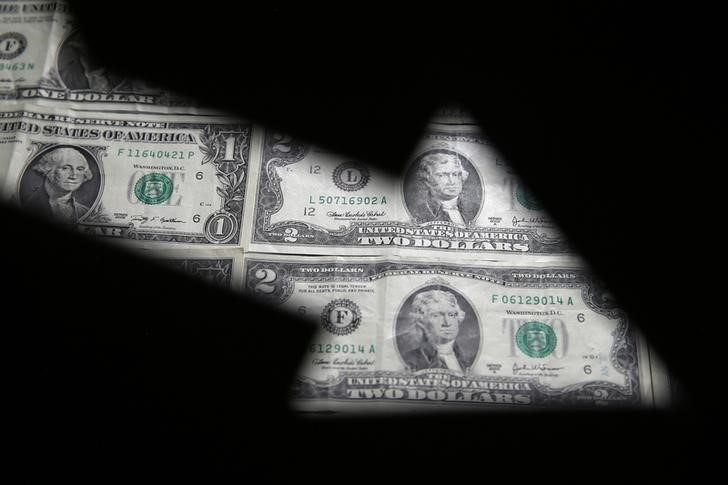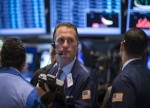
- All Instrument Types
- Indices
- Equities
- ETFs
- Funds
- Commodities
- Currencies
- Crypto
- Bonds
- Certificates
Please try another search

Dollar Gains; Yields Rise on Inflation Concerns
 © Reuters.
© Reuters.
By Peter Nurse
Investing.com - The dollar pushed higher in early European trading Wednesday, following a surge in U.S. bond yields on the prospects of a prompt economic recovery and a possible acceleration in inflation.
At 3:55 AM ET (0755 GMT), the U.S. Dollar Index, which tracks the greenback against a basket of six other currencies, was up 0.3% at 90.757, bouncing from the three-week low of 90.117 hit on Tuesday.
EUR/USD dropped 0.3% to 1.2074, USD/JPY was flat at 106.06, after earlier hitting a five-month high, while the risk-sensitive AUD/USD fell 0.1% to 0.7746.
Benchmark 10-year Treasury yields made a fresh one-year high late Tuesday, rising as high as 1.333% from around 1.20% at the end of last week, and the prospect of better risk-free returns lent support to the U.S dollar.
Central to the discussion is the likely path of inflation levels going forward, particularly given the likelihood of the Biden administration getting its way and an additional $1.9 trillion of stimulus, largely funded by borrowing, being injected into the U.S. economy.
The gap between ten-year and two-year U.S. yields also widened to the largest level in nearly three years, suggesting investors don’t expect the Federal Reserve to lift interest rates in the short-term. But for how long will they be prepared to stay accommodative if inflation climbs above the 2% level?
The minutes later on Wednesday from the U.S Federal Reserve's January meeting will be closely watched for clues as to when the central bank will move.
“U.S. CPI inflation also disappointed a touch in January, which may have soothed some inflation fears. This will however all change in a couple of months’ time,” said analysts at Nordea, in a research note. “Indeed, we expect the current inflation breeze to strengthen into gale force winds by the second quarter, at least in terms of the market’s narrative.”
Elsewhere, GBP/USD fell 0.2% to 1.3878, weighed by the support for the dollar, even as U.K. inflation accelerated in January, with consumer prices increasing 0.7% from a year earlier, slightly up from 0.6% in December, the Office for National Statistics said Wednesday.
It leaves inflation well below the 2% level targeted by the Bank of England, which has cut interest rates and expanded its bond-buying program in response to the economic damage caused by pandemic.
Related Articles
Are you sure you want to block %USER_NAME%?
By doing so, you and %USER_NAME% will not be able to see any of each other's Investing.com's posts.
%USER_NAME% was successfully added to your Block List
Since you’ve just unblocked this person, you must wait 48 hours before renewing the block.
I feel that this comment is:
Thank You!
Your report has been sent to our moderators for review





Add a Comment
We encourage you to use comments to engage with users, share your perspective and ask questions of authors and each other. However, in order to maintain the high level of discourse we’ve all come to value and expect, please keep the following criteria in mind:
Perpetrators of spam or abuse will be deleted from the site and prohibited from future registration at Investing.com’s discretion.